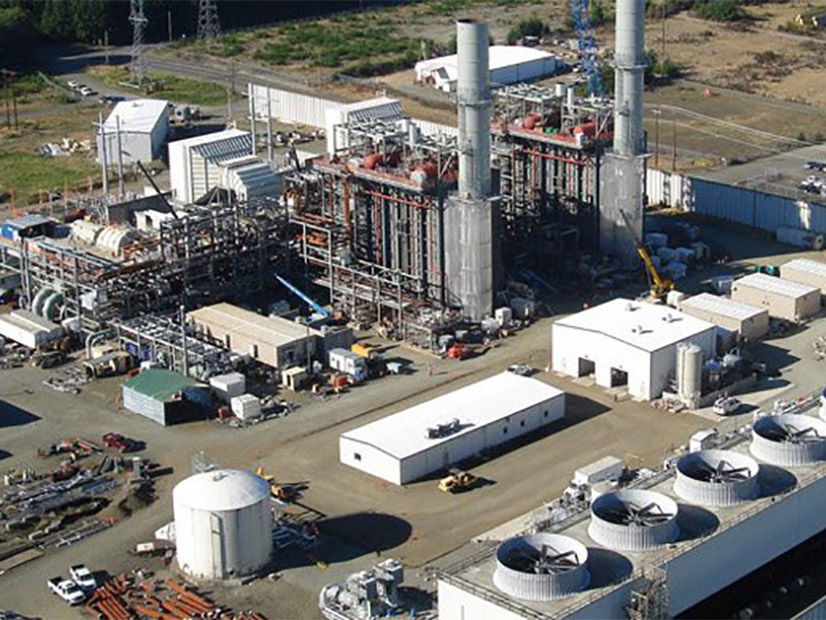The owner of Washington’s only non-utility gas-fired plant has filed a suit over what it claims is discriminatory treatment in the state’s impending cap-and-trade program.
Chicago-based Invenergy on Tuesday filed the action against the program’s administrator, Washington’s Department of Ecology, in the U.S. District Court in Tacoma, Wash.
Invenergy owns the 698-MW Grays Harbor Energy Center in Elma, Wash., the only gas-fired facility in Washington not owned by a utility. The plant did not receive an allocation of no-cost carbon allowances such as those granted to utility-owned power plants under the state’s new cap-and-trade program, which goes into effect Jan. 1.
The company’s petition contends that the state law underpinning the program, the Climate Commitment Act, is unconstitutional because it discriminates against independent owners of fossil fuel plants, violating the Equal Protection Clause of the U.S. Constitution. The lawsuit also alleges the Ecology Department denied the plant no-cost allowances under the program because it has an out-of-state owner, a violation of the Constitution’s Commerce Clause.
Invenergy complains that Grays Harbor will have to add the costs of buying cap-and-trade allowances to its power prices, a burden not faced by the 12 other utilities that own gas-fired plants. “The [Climate Commitment Act’s] allocations of no-cost allowance uniquely harm Invenergy. … Ecology brushed aside Invenergy’s concerns about unfair treatment,” the complaint said.
The lawsuit seeks no-cost allowances for the plant.
Under cap-and-trade, greenhouse gas emitters must acquire allowances for specific volumes of emissions, which they can buy, sell or trade with other businesses. The maximum volume of statewide emissions and allowances will decrease over time under the program.
The program’s plan calls for an undetermined number of emissions allowances to be auctioned four times a year to smokestack industries. The first auction is set to be held at a yet-to-be-scheduled date in February 2023. The state will set the number of allowances 60 days prior to the auctions.
Companies would bid on the allowances in clusters of 1,000 individual allowances. The number of allowances will be decreased over time to meet 2035 and 2050 decarbonization goals. If Washington chooses to join the Western Climate Initiative, which includes California and Quebec, participants would expand their purchase and trading territory to those two areas. Washington is the second state to adopt a cap-and-trade system following California.
For each auction, a specific number of allowances would be made available to bidders. All bids must be above a certain price level set in advance by the state. The highest bidder would get first crack at the limited number of allowances, while the second highest bidder would get the second crack, followed by additional iterations. The auction ends when the last of the designated number of allowances is bid upon. Then all the successful bidders pay the same clearing price set by the lowest successful bid.
Invenergy’s lawsuit alleges that the 12 in-state utilities have stronger local, political, donation and lobbying presences in Washington than that company, leaving the Illinois company out-gunned in efforts to lobby the state legislature and Ecology Department.
“We are reviewing the filing by Invenergy and Grays Harbor Energy,” Ecology said in a statement. “As we work to implement the Climate Commitment Act and reduce the largest sources of carbon pollution in Washington, we are committed to following the direction set by the Legislature. We believe courts will find that the law and Ecology’s work to implement it are fully constitutional.”
Ecology rejected allocating no-cost allowances to Grays Harbor goes despite a recommendation by Washington’s Energy Facility Site Evaluation Council in September to extend the allowances to the plant.



